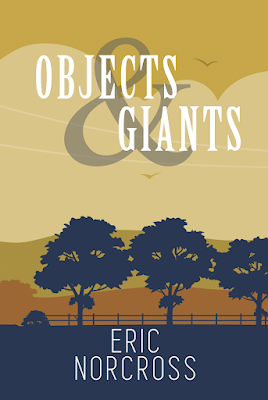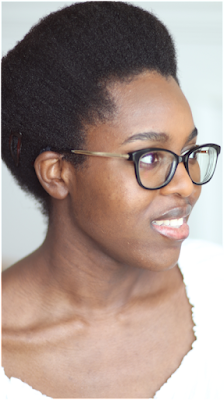Eric Norcross interview
AUTHOR INTERVIEW
When did your love of books begin?
My love of storytelling began very early, although I do not recall any specific instances before the 3rd grade. I retain a first-grade report card where my teacher, Ms. Amel, wrote about how much I love stories; she detailed how my mood always settled during storytime, and how I'd choose to stay inside during recess - so that I could write my own stories. (choosing to forgo play-time so that I could stay inside and work on my stories is still very much who I am today)
Sometime between the 3rd and 5th grade, I started viewing books as something that I might be able to produce. Although my reading level was behind all my peers, I laser-focused on the kinds of stories that I thought I might like to write. One of my favorite books from this era was Avi's "Something Upstairs" - a ghost/time travel story set in New England. As a Mainer, I think I read this book ten times before growing out of it. (I had the pleasure of interviewing Avi last year, and most of the conversation was about this book - so I guess I never actually grew out of it.)
When I was in high school, I took a two-year graphic design course so that I could learn about cover art and page layout, and another two-year course in video media. All of this played a roll in preparing me to take my journey as an author into my own hands. I'll talk more about this later.
When did you start to have the wish to become an author?
I never wished to become an author. I see it as a practical option for telling the stories I desire to tell. It became apparent in middle school that I would eventually write a book. I do not know if I thought I'd become an author, but I knew then that this medium was in the cards for me.
How have you found the process for becoming an author?
When I wrote my first novel at the age of 23, I tried to agent-up and appeal to publishers. I found the process soul-crushing and to an extent, wholly inappropriate. The business wasn't commensurate with the creative process (if that makes sense). A few shady characters tried to scam me into paying them out of pocket to represent me (never pay an agent out of pocket/up front). Suffice to say, I became disenchanted pretty quickly - but I still loved writing and they couldn't change that.
Once I started the indie route, and learned to treat my writing/publishing practice as a business, things became much more pleasant. This is why I'm an advocate for "artist as entrepreneur" and not so much "artist for hire". I think when you want it given to you, your creativity won't be properly respected.
Creative people really need to have several degrees worth of knowledge if they're going to be successful in the 21st century; an MFA level writing skill, and MBA level business knowledge. I'm not saying they need the degrees, but the knowledge (even if obtained via experience) is vital. By having a command of your craft, and being well-versed in basic business affairs, a person can be quite successful as an author.
What would you say to those wanting to become an author?
1. Write write write! Never stop writing, and never stop pushing your voice beyond your comfort zone. If you're against curse words, curse-up a storm. If you're freaked about writing about your family, go to town on them. Remember, writing doesn't always mean publishing. Dare to write the thing that scares you, and don't dwell on what others might think. I didn't find my voice as a writer until my 4th novel, and was well into my 30s. This happened with a book called OBJECTS & GIANTS. I wrote it in 2014 and published it in 2015. O&G is a story about my family, our tattered relationships and mistreatments. I was SCARED to write this thing, but it was in the process of facing that fear that I realized that these are the kinds of stories I'm supposed write. Although it could have turned out bad, this book ultimately got me reconnected with my sister, and we have a stronger relationship for it.
2. Take your media seriously. Part of the job is to communicate with the public, your readers, and your contemporaries. *Being well-versed in video media will be a huge asset moving forward, and I was lucky to have picked this up before the proliferation of online video media. Invest in it early, and stay ahead of its evolution.
3. You may be inclined to think of your contemporaries as competition, but your value isn't diminished by their successes, it's enhanced. You're not competing at all. You might want what they have, but them having it doesn't mean you're disqualified from obtaining it (at some point). This is something so many creatives who are just starting out don't seem to understand. Abandon all jealousies!
Tell us about your book/books:
My novels:
Saratoga Land Mine is coming out this summer. This is my follow up to Objects & Giants, and I've been writing it since 2016. It is a first-person present tense narrative from the POV of a truly horrible person: a misogynist named Lee, who becomes so disenchanted with the world that he allows himself to become the destroyer of civilization. Writing from the point-of-view of this particular character was so difficult that I had to constantly break from it (which is why it has taken so long to finish). Saratoga Land Mine will be the first of a four-book series, and because of the nature of the character, the hardest book I've ever written, and expect to ever write. 🤞 Here's hoping to smoother writing experiences in the future.
Objects & Giants is still the primary novel I'm pushing at the moment. The story revolves around an aging male model named Julian Lesage, and his road trip back to his hometown to deal with his father's impending death. Although a work of fiction, a lot of the details in the book are taken from my own family dynamics and social struggles. Everything is a metaphor for something real.
The Violin Diary was my third novel, but the first I wrote from a personal place. It is the story of a failed relationship that I desperately wanted to make work. Although not my best writing, and certainly not in line with my present voice, I keep this book on the market because so many of my male readers have had experiences like this, and have written to me to convey how much they appreciate someone telling the story so openly. When I lived the experience, I thought I was alone, but after publishing the novel, I found out that I'm far from alone.
Short subjects:
My short stories, Fritz and Squatterism at High Noon were published in journals not long ago, and are made available in e-book and paperback editions.
Fritz is a short story about a dog I grew up with, and a commentary about growing up. I often describe this as my "Peter Pan and Wendy". The paperback includes all the various incarnations of the story through its development, and essay materials pertaining to the creation of the story. If you ever wanted to see what it is like to build a story from concept to completion, this book has all that.
Squatterism at High Noon is about the one month I spent living as a squatter in an old industrial building in Lower Manhattan, and some of the shady characters that lived down there. This was the first story I ever had published in a literary journal. The publication includes photographic documentation of the era.
Poetry:
Running Guns Across State Lines is a poetry collection that will be released this autumn. It is a collection of poems related to growing up, bad happenings, and the power of art in overcoming adversity. It will also include sequential art as part of its aesthetic. The idea of "running guns" is employed as a metaphor for "dangerous art".
Reflecting on Whatever's Clever is a poetry collection I released a few years back. It collects a series of poems I wrote between 2014 and 2017. There are some gems in there (a few have been published in journals), but I don't push this one hard because it's highly experimental and I don't consider the majority of the work "my voice at present'. It'll forever remain a deep cut of my back catalog.
What do you love about the writing/reading community?
On social media (especially Twitter), I find the #WritingCommunity to be incredibly kind, supportive, and responsive. This is unlike any other art community I work in (I am also active in film and mixed-media art). While I don't engage with the Reading Community specifically, I suspect there is a great deal of overlap between the two, and will, in the name of good spirit, assume they're great as well. 😀
One of the things the Writing Community taught me was how Twitter can be used and improved as a platform: by simply asking questions, the tone of engagements completely shifts in a more positive direction. To think, after all these years, it was so simple! Just ask questions!
If you could say anything to your readers what would it be?
My writing practice is a journey, so if you like something I write but not another thing, it's likely I feel the same way. Please don't write me off because of a single work - I am an experimentalist, so if one thing isn't for you, the next might very well be.
Lastly, The worst part of the journey is that sometimes I feel alone, so please feel free to reach out and let me know when you've read something, so I know that you're out there listening. I am on social media, and have a contact form on my website. A public review on Amazon and Goodreads is also a great way to let me know.
Where can people connect with you?
I am on all the major platforms, but I am most interested in building subscribers on YouTube, and my connections on Twitter. Here are all the links:
YouTube.com/c/EricNorcross
Twitter: @EricNorcrossPod
Instagram: @EricNorcrossAuthor
Website: www.EricNorcross.com
Amazon Author Page: https://www.amazon.com/Eric-Norcross/e/B00JH2X57W?ref=sr_ntt_srch_lnk_2&qid=1651358558&sr=8-2
I also have a podcast available on many audio platforms THE ERIC NORCROSS PODCAST



.jpg)

Comments
Post a Comment